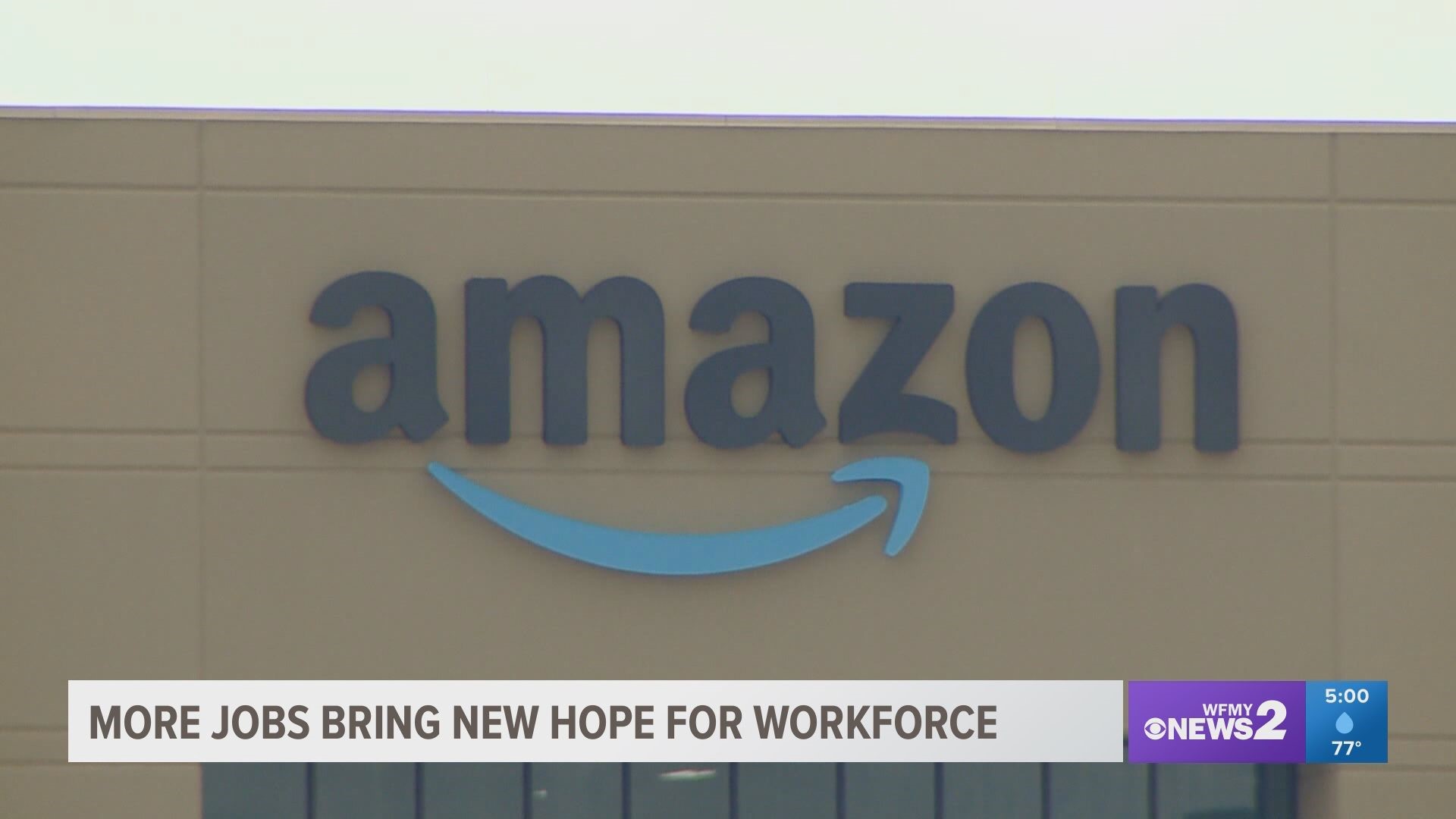GREENSBORO, N.C. — Amazon plans to hire more than 400 workers in the Greensboro area, a company spokesperson told WFMY News 2 Wednesday.
It's part of a company-wide initiative to hire 125,000 people across the country. Amazon is looking for transportation and order fulfillment workers and said the positions start at $15.50 per hour.
A spokesperson with the company said the majority of the 400 available jobs are at the fulfillment center in Kernersville and the delivery station in Rock Creek, North Carolina. The average starting wage at Amazon facilities across the country is more than $18 an hour.
The company also provides full-time employees with health, vision, and dental insurance benefits starting on day one, 401(k) with 50% company match, and up to 20 weeks paid parental leave.
Amazon will also pay full college tuition for its front-line employees as part of a $1.2 billion investment to expand education and skills training for its U.S. workforce.
Amazon has three facilities in the Greensboro area - a Whitsett delivery station, a Colfax delivery station, and a Kernersville fulfillment center.
To check out available jobs, click here.
Triad experts said more jobs are positive news for the area.
"Four hundred jobs certainly stands the opportunity to kind of move the needle and get people back into meaningful employment," said Guilford Works Executive Director Chris Rivera.
He said Amazon's pay starting at $15.50 per hour is competitive, which is a welcome sign.
"What this offers up is a variety of different opportunities for the 14,000+ individuals in our community that are looking for work," he said.
Industries across the board are looking for workers, but Rivera and North Carolina A&T Associate Professor of Economics Cephas Naanwaab agree that the retail and hospitality industry suffered the most.
"Those industries happen to be the hardest hit right? Retail, leisure, and hospitality. At the height of the pandemic, these sectors lost the most jobs," said Naanwaab.
Now trying to recover from that is so tough because workers in these industries interact heavily with the public where covid-19 can spread.
"You're exposed and because of that exposure people are still a little bit scared of going back to work," he said.
This is not to take away from the progress we made. At the height of the pandemic, the unemployment rate was as high as 15 percent at times. Now it's down to just over 4 percent.
Naanwaab said how much more progress is made over the next few months depends on how much the delta variant spreads.

